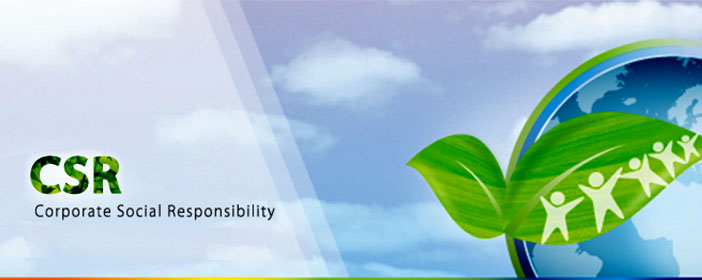Cynical practice has always been the root weakness of CSR, which grew into a form of enlightened behaviour as a legitimate extension of the art of public relations.
Ethical Corporation, a UK-based organization in the business of providing news and research on sustainability, headlined this theme for a marquee event in London next June: “The end of CSR and the dawn of the Social Purpose Era”. The purpose is to discuss “opportunities that align commercial and financial goals with macro societal need”, and the distance businesses need to journey for positive, measurable impact.
Are we seeing an outing of CSR from the closet of media photo-ops and self-glorification in glossy annual reports into what it so often is: window-dressing that an overview of a conference at London Business School memorably described as “sticking plaster for companies attempting to engage with society”. Is it the outing of corporate affairs, corporate governance, CSR, and public relations into a collective, brutally honest—and public—face? Or have a cabal of consultants cooked up a new catchphrase to fire interest as much as a bona fide re-orientation?
A bit of everything.
“CSR is dead. It’s over!” Peter Bakker, president and chief executive officer (CEO) of Geneva-based World Business Council for Sustainable Development, announced at a sustainability conference in Denmark, in October 2014. The Council represents more than 200 corporations. Its executive committee includes Paul Polman, CEO of Unilever; Ana Botín, executive chairman of Banco Santander; Bruno Lafont, co-chairman, LafargeHolcim; Cao Yaofeng, director of Sinopec Corp. and a top executive with CNPC; and even Vishal Sikka, CEO of Infosys Ltd.
It’s a heck of heft with which to make statements and decide agendas. Basically, the assumption is that CSR is beyond its sell-by date, doing good and being seen to do good has moved to the realm of a Musketeer-like all for one world and one world for all effort where good business equals doing good by global society: addressing poverty, hunger, energy issues and such, alongside profiting with sustainable financial, social and environmental capital.
This CSR is all to the good, though I offer without comment a list of the Council’s members at wbcsd.org. It also includes some names, in addition to some businesses represented on the executive committee that could set aflutter a battery of environmental and human rights activists: Trafigura, Vedanta, Coca-Cola, Shell, and Monsanto, among others. Several of these businesses in the agribusiness, extractives, hydrocarbons, chemicals and other areas are also members of the United Nations Global Compact, which describes itself as a “call to companies to align strategies and operations with universal principles on human rights, labour, environment and anti-corruption, and take actions that advance societal goals”.
These wordy initiatives—call them a collective of good intention and good optics: tellingly, good practice is described as a “goal” or “vision”—evidently has its roots in the theory of the “triple bottom line”. As The Economist described with brevity in 2009, it consisted of “three Ps: profit, people and planet”. The concept is attributed to a British business stratetgist, John Elkington. As far back as 1994, he proposed that the profit and loss account was to be supplemented by a “people account” and a “planet account”—pretty much the sustainability agenda being bandied about these days. It took two decades to popularize the concept enough to declare CSR dead.
Cynical practice has always been the root weakness of CSR, which grew into a form of enlightened behaviour not because most businesses or business leaders discovered themselves to be saintly or one with the planet after acquiring success, but quite apart from personal or corporate philanthropy, as a legitimate extension of the art of public relations.
CSR has always been firmly pegged to return on investment through the action and perception of better community relations—even recently-mandated CSR in India for companies of a certain size and profitability. If anything, ideas like “Social Purpose Era” seek to streamline the often choppy mix of corporate affairs; corporate governance; “vanilla” CSR like funding a school, childcare, disaster relief, planting of trees, or, a current favourite in India, toilets; mitigating—and managing—human rights fallout; and public relations. To these add resource and energy management for profit, and another concept appropriated by corporate litterateurs, that of hoary Millennium Development Goals, and you get a linear accelerator of comprehensive (dare I use “holistic”?), sustainable profit.
At any rate that is the theory. Practice is what makes a concept thrive, or makes it lame—or kills it. Ask CSR.
This article was taken from here.

